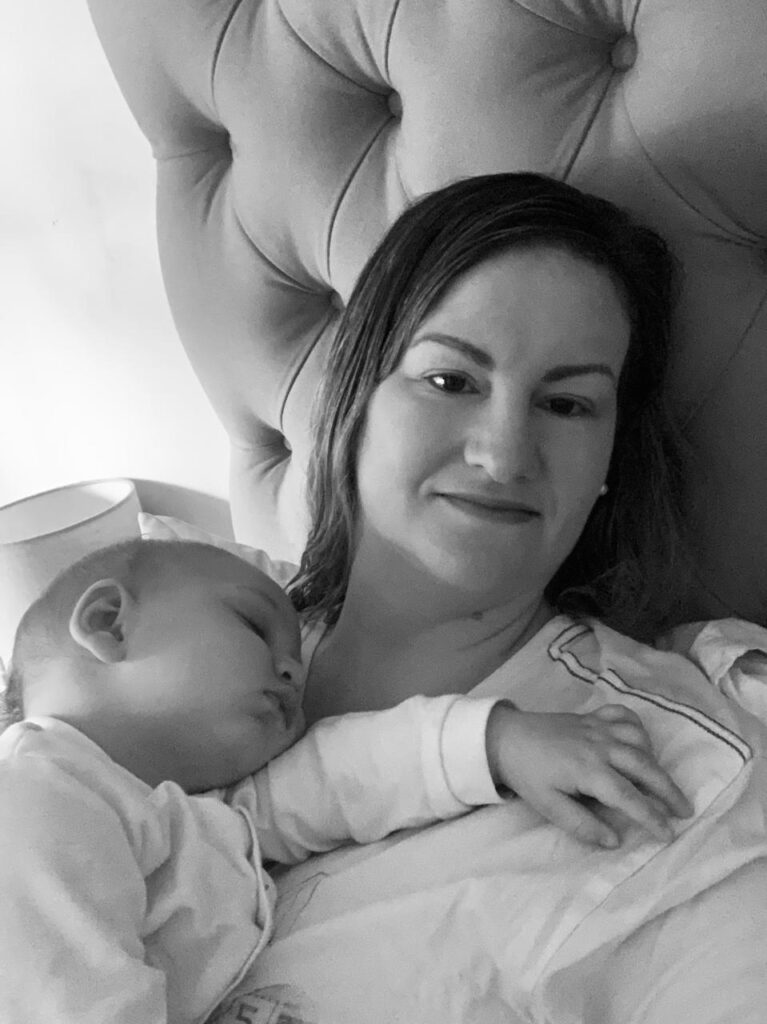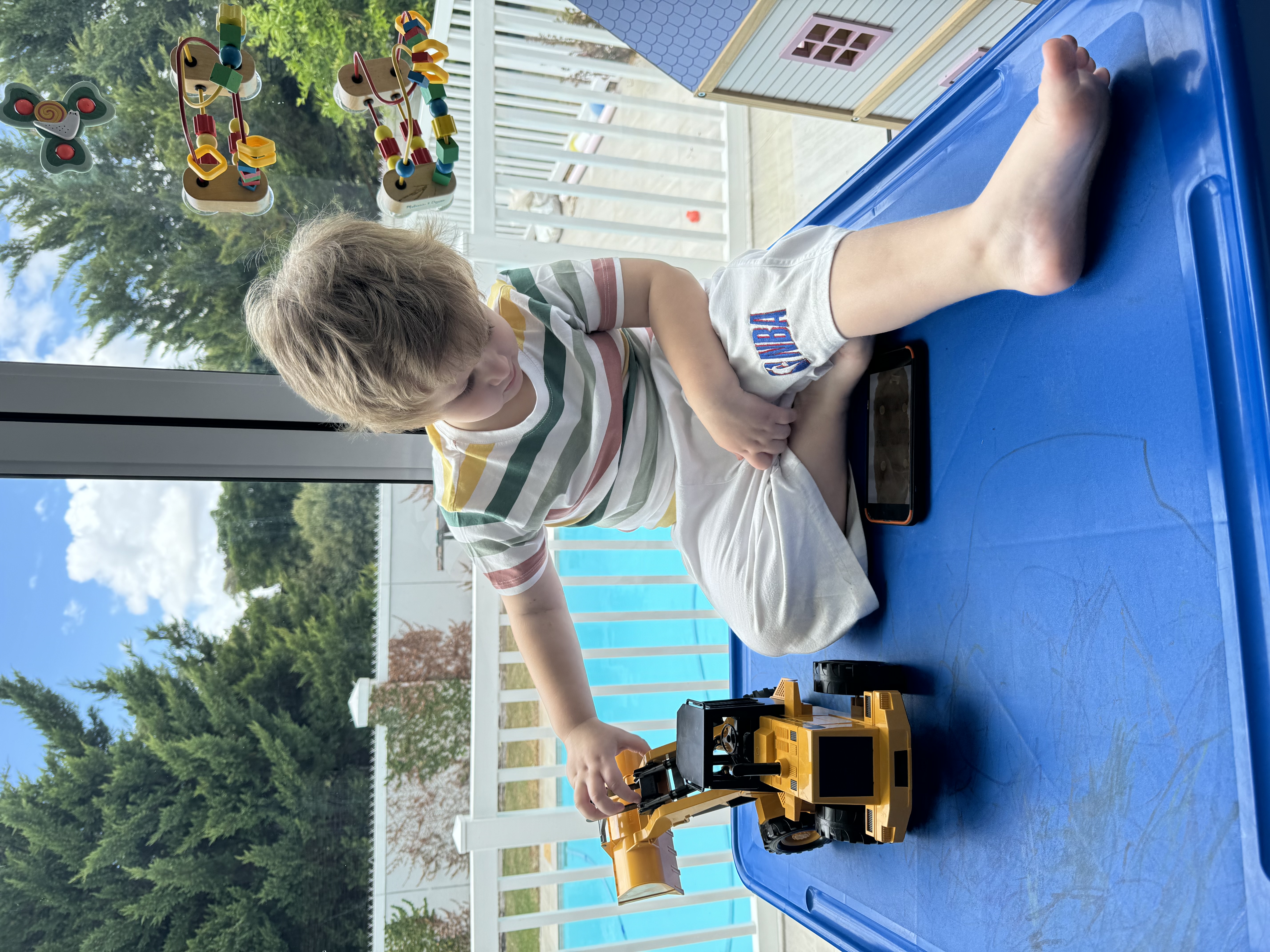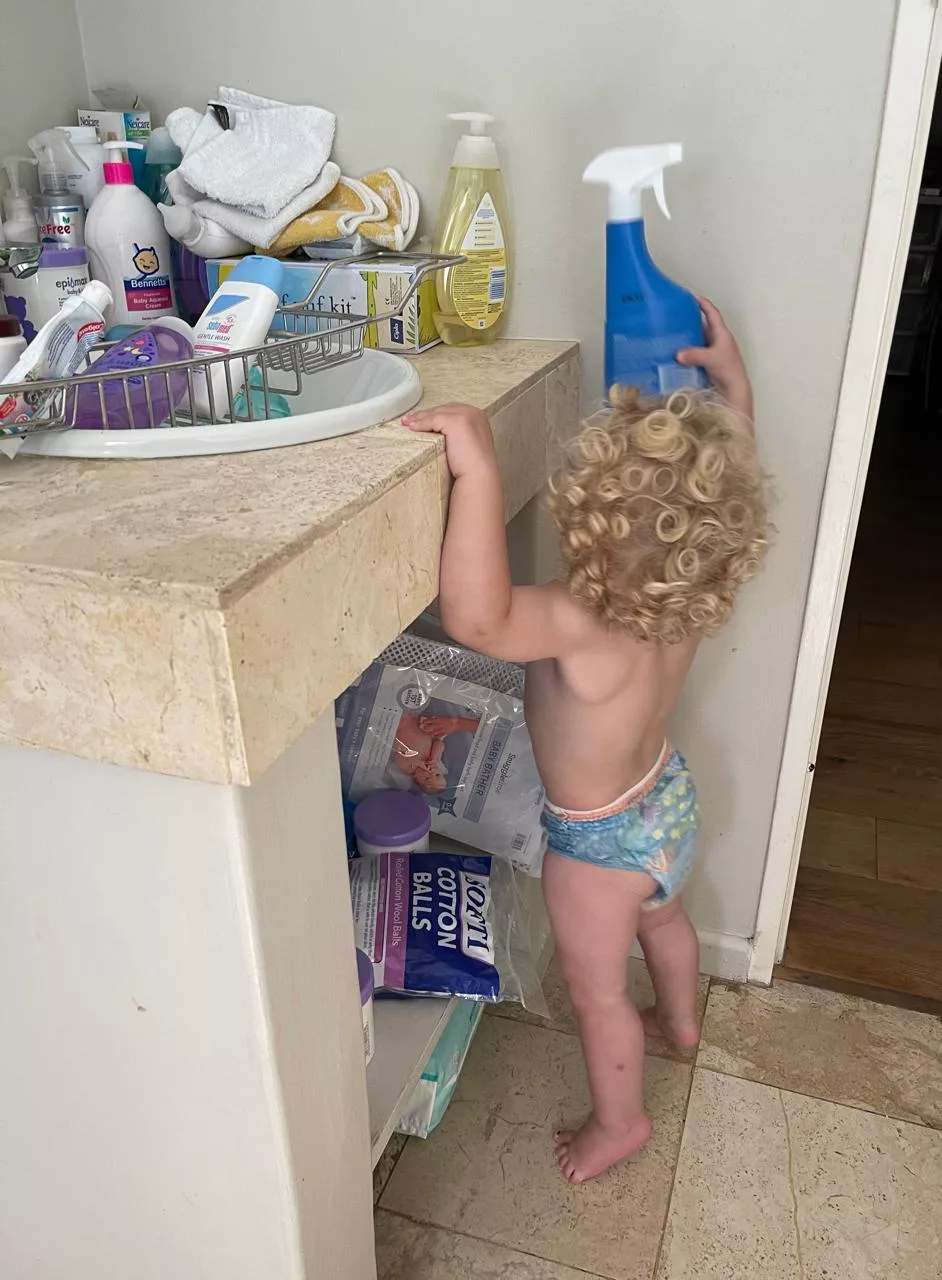If you’re the parent of a newly-diagnosed child, the “who’s”, “how’s”, and what ifs” will definitely be keeping you up at night. A million questions churn through our minds as we contemplate a different life than the one we expected. It takes time and processing for us to realise that while our parenting journey may be different, it won’t be lesser. It’ll be an incredible adventure and chock-full of amazing moments and memories. But in the early days… we worry! Constantly! And it’s completely understandable.
I sat today and began to jot down some of the questions that kept me tossing and turning when a doctor first confirmed what we already suspected: autism. I don’t know if we all wonder about the same things exactly, but here are some of mine:
WHO…
…can give us more information on what autism is?
…can tell us what our child’s specific challenges are?
…do we approach for behavioural/feeding/sleeping/educational support?
…will diagnose other conditions or co-morbidities?
…will be our “Village” when we need respite help and care?
…is a safe friend to confide in on hard days?
…will our son grow up to be?
…will care for Aidan when we’re no longer here?
HOW…
…will autism impact our son’s growth and development?
…will autism impact his ability to be self-sufficient and independent one day?
…do we secure the diagnoses/therapies/services/accommodations our child needs?
…do we learn to advocate for Aidan and our family?
…do we find strength enough for this journey?
…do we as parents provide the support needed at home?
…do we learn to regulate Aidan and ourselves?
…do we help him to eat better?
…do we help him to sleep better?
…do we know if medication is needed?
…do we know which might be the right medication for him?
…do we handle aggression or self-injurious behaviours?
…do we manage finances and savings for our child’s future?
…do myself and my husband become the team we need to be?
…do I communicate with my husband at times of high stress?
…do my husband and I find time for each other and prioritise our marriage?
…do I find time for myself and prioritise my self-care?
…do I best manage my own health?
WHAT IF…
…it never gets easier?
…Aidan never sleeps through the night?
…he only eats three things?
…those three things hold little nutritional value?
…he doesn’t want to wear specific clothing or shoes?
…he won’t potty train?
…he never stops stimming?
…Aidan has a huge meltdown in public?
…Aidan can’t cope with new people or in new places?
…he remains nonverbal or minimally verbal?
…Aidan becomes aggressive or starts self-injuring when I’m not around to help?
…our son begins eloping?
…he needs to be admitted to the hospital?
…I can’t secure the early intervention therapies my child needs?
…our child needs added support and accommodations in the classroom?
…the school can’t cope with Aidan’s behaviours?
…he can’t emotionally cope in mainstream schools?
…he struggles to make friends?
…nobody comes to his Birthday parties?
…Aidan gets bullied for his differences?
…he is neglected or abused under someone else’s care?
…our son never learns to drive?
…he can’t go to university?
…he can’t handle his own finances?
…Aidan can’t manage taking his medications?
…he can’t look after himself independently?
…he never gets to travel?
…Aidan has an interaction with law enforcement?
…he suffers from anxiety or depression?
…he never finds love or gets married?
…he never gets to have children of their own?
…our family doesn’t have a “Village”?
…our son is treated differently to other children in our extended family?
…I am ill, incapacitated or can’t care for Aidan as he needs me to?
…I become unemployed or retire?
…I don’t live long enough to see him become an adult?
…our son needs to be placed in residential care or a group home one day?
Though our minds take us to all sorts of dark places when we are scared for our children, these are all completely normal fears and concerns for a special needs parent. Wondering whether our child will be accepted, included, and loved for their authentic autistic selves is an anxiety like no other. Feeling helpless to help them in their most vulnerable and dysregulated moments is a stab to the heart. And realising that life will always be challenging for them to some extent is a kick to the gut.
After an autism diagnosis we find ourselves staring at the ceiling, sleepless, wishing we had a crystal ball. Wishing we could see the future! Praying that we will find ways to help our children while they’re young, and be able to watch them become happy and fulfilled adults someday. The constant agonising over whether we’ve made a right or wrong decision for them, and how it might impact their future, is extremely emotionally draining. And so we soon discover that we have to live moment to moment, only focusing on what we can do in the present, trusting that if we show up and do our best, it will be enough. We have to get comfortable being uncomfortable and learn how to stop catastrophising as far as possible. This is not a skill that comes to a parent overnight. Hell, I still struggle with this now and I’m three years in!
Let me reassure you that you will find a way through each of your child’s challenges, one step at a time, one day at a time. Every special needs parent finds a way. And what is so hard in the beginning, becomes easier with time. Wherever you are right now, is not the place you will remain. You might be counting inch stones instead of milestones some months, but you are still moving forwards. And even when you experience a regression, you will pause for a moment, reassess, adapt and proceed. Nothing is insurmountable, no matter how it feels in the moment.
When you’re struggling to sleep with worries circling in your mind like a washing machine, I encourage you to think of all the ways you can set your child up for success. To rather focus on what’s possible, instead of what’s not. To find creative solutions for every kind of challenge. And to lean into all of your child’s strengths and passions. Here are a few tips that I’ve found really helpful on our own autism journey:
- Read as much as you can about Autism. Join support groups on Facebook and Reddit, follow blogs and Youtube channels, and see which special needs parenting groups might be in your local area.
- Have your child thoroughly checked out by their paediatrian, an allergist, and a psychologist or neurologist, so you know which conditions may be in play, and how best to manage them.
- Nurture all of their interests, so that on the harder days, it’s easier to redirect them to things that make them calm and happy.
- Encourage them to explore the world around them, taking note of even the smallest things, so that whenever you are stuck for something to do, going outside to the yard or out to a park is a fun-filled adventure for them.
- Learn to read their cues for overwhelm, so that you can temporarily remove them from a situation they’re struggling with before they go into meltdown.
- Teach them resiliency by showing them that even if they need to step away for a moment for a breather, they can return to the activity – if they’d still like to.
- Teach your kiddo how to self-soothe so that whether they are battling to sleep or experiencing overwhelm in a public setting, they have more tools to help self-regulate.
- Try a variety of different routines through the day and night to identify which one works best for your child and family.
- Provide your child with a basic structure and routine to help them ground themselves and feel secure.
- Keep outings fluid – from the route you take to a shop, or the places you visit on the weekends – to prevent your child from becoming too ritualistic or rigid.
- Play with cause and effect toys to peak their curiosity and help develop varied and independent play.
- Teach them how to ask for your help with games or everyday chores, to build their confidence and joint attention.
- Sign your family up for special needs events and family outings.
- Never isolate your child away from other children, and ensure they are always included in events and outings, so they can begin to take cues from other kiddos and imitate some of their skills.
- While out and about with your child, always see a question from another child or adult as an opportunity to educate and advocate.
- Gently explain to other children that your child may not be verbal, but they are having a great time playing with them.
- Help your child develop multiple different ways to communicate whether that is through hand leading, signing, PECS, using an AAC device or similar. Enroll your child in regular speech therapy. Being able to communicate wants and needs will cut down on your child’s feelings of loneliness and frustration. This in turn, lessens the adverse behaviours you’ll experience at home.
- Be open to medication. Even if just temporarily to help them over a hump. If your child broke their leg, you’d never object to a cast being put on it. If your child is really struggling and needs additional support, speak to their psychologist or neurologist about what might help them.
- Inform compassionate neighbours and local law enforcement that an autistic child with additional needs lives at your address. It always helps to have extra eyes and ears out for signs of elopement.
- Teach your child road, water and general safety so that if elopement does happen, your child is better safeguarded until you can reach them.
- Advocate for your child within your own extended family so that your loved ones not only know what you’re going through, but also know how to best offer you support whether that’s words and affirmations, encouragement and championing, or offering respite care to you and your partner.
- Ensure that all of your loved ones use respectful terminology when talking to you or your children.
- Research deeply into what services, resources and specialists are available to you in your area.
- Consult behavioural consultants like OT’s or ABA therapists to troubleshoot extreme intolerances, sensory sensitivity, over-reactivity, negative responses, and adverse behaviours, to find a way to manage them.
- Get yourself a therapist, and if needs be, a couples counsellor. It’s really great to check-in regularly in order to safeguard your own mental health and the health of your primary relationship.
- Lean on your Village to calve out some kid-free time to yourselves and for each other. Identify which friends or family can step in for you if you become ill, incapacitated, or need to go to hospital.
- Encourage each other to pursue interests and hobbies away from special needs parenting.
- Invest in your own health so you can live a lovely long life for your kiddo.
- Consult with a financial advisor so that you and your partner can plan and organise your finances for any future supports your child may need.
- Make sure to draft a will.
Don’t forget, you CAN do this! And so can your kiddo. You WILL succeed, and so will they. Never accept what an outsider deems to be the sum total of what your child can achieve. Because they will learn more, do more, and be more than any projection you receive. There are hard days and nights to be sure, but truly, there’s an amazing life ahead of you all.


